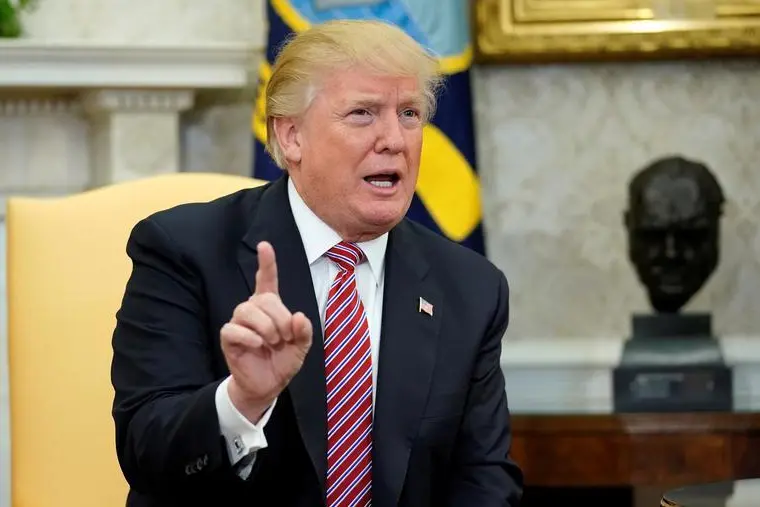PHOTO
U.S. President Donald Trump rattled financial markets on Thursday when he announced tariffs of 25 percent on steel and 10 percent on aluminium, making good on his ‘American First’ campaign promise to bring jobs in coal, steel and other 19th-century industries back to the United States.
For the rest of the world, this was a shot across the bow. Not only is the president potentially risking trade wars, which he claimed in a tweet were “good for the United States,” these measures are also likely to trigger inflation and severely disrupt supply chains in many industries, Reuters said.
So how will this impact the Middle East?
The United Arab Emirates is the third largest aluminium exporter to the U.S. after Canada and Russia, and the UAE’s Emirates Global Aluminium (EGA) is the third-largest producer of primary aluminium outside China.
However, the company said on Sunday it was "well prepared" for any market conditions should Trump go ahead with his tariff plans.
"Alongside Europe, Asia and the United Arab Emirates, the U.S. is an important market for EGA," the company's spokesman told Reuters. "We are well prepared for whatever market conditions may arise," he added. (Read the full story here)
China, Dubai’s number one external trade partner since 2014, is one of the prime targets of Trump’s plan, with his trade representative Wilbur Ross complaining last week about Chinese steel and aluminum overcapacity and low prices.
However, China remains resilient and said it aims to expand its economy by around 6.5 percent this year, the same as in 2017. In remarks prepared for delivery at the opening of the annual meeting of parliament on Monday, Chinese Premier Li Keqiang said the Beijing government opposes protectionism and supports the settlement of trade disputes through negotiation, but will "resolutely safeguard" its legitimate rights and interest. (Read the full report here)
Many Gulf economies rely increasingly on growth in China and Japan. Asian oil consumption is crucial to Saudi Aramco and ADNOC, for example. In light of increased petroleum exports from the U.S., these markets will gain ever-greater importance, Reuters reported.
Saudi Arabia is embarking on an exciting and challenging plan to implement Vision 2030, which will depend on imports as well as exports. In other words, the GCC economies have every interest in a growing global economy to achieve their goals and dreams. They need a functioning global trading regime — just as much as Germany or Canada do.
On the back of the news from the U.S., gold prices were up on Monday as the dollar remained subdued on fears of a global trade war. The U.S. currency, which is pegged to the majority of Gulf currencies, slipped from its six-week high that it touched on March 1. "Any escalation of trade wars will significantly dent the U.S. dollar appeal, weigh negatively on U.S. assets such as bond and equities and make gold the go-to hedge against rising U.S. fiscal and political vulnerabilities," Stephen Innes, APAC trading head at OANDA, was quoted as saying by Reuters.
Further reading:
- Trade wars Trump pulls the trigger
- Gulf markets mixed, Saudi stocks slip
- Dumping US debt a possible weapon in global trade war
- Emirates Global Aluminium well prepared for market conditions following Trump tariff threat
- China keeps growth target of around 6.5% this year
(Writing by Shane McGinley; Editing by Nada Al Rifai)
(shane.mcginley@thomsonreuters.com)
Our Standards: The Thomson Reuters Trust Principles
Disclaimer: This article is provided for informational purposes only. The content does not provide tax, legal or investment advice or opinion regarding the suitability, value or profitability of any particular security, portfolio or investment strategy. Read our full disclaimer policy here.
© ZAWYA 2018





















